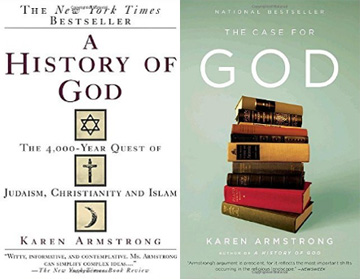|
| |
|
| |
|
|







|
|
TCHS 4O 2000 [4o's nonsense] alvinny [2] - csq - edchong jenming - joseph - law meepok - mingqi - pea pengkian [2] - qwergopot - woof xinghao - zhengyu HCJC 01S60 [understated sixzero] andy - edwin - jack jiaqi - peter - rex serena SAF 21SA khenghui - jiaming - jinrui [2] ritchie - vicknesh - zhenhao Others Lwei [2] - shaowei - website links - Alien Loves Predator BloggerSG Cute Overload! Cyanide and Happiness Daily Bunny Hamleto Hattrick Magic: The Gathering The Onion The Order of the Stick Perry Bible Fellowship PvP Online Soccernet Sluggy Freelance The Students' Sketchpad Talk Rock Talking Cock.com Tom the Dancing Bug Wikipedia Wulffmorgenthaler |
|
bert's blog v1.21 Powered by glolg Programmed with Perl 5.6.1 on Apache/1.3.27 (Red Hat Linux) best viewed at 1024 x 768 resolution on Internet Explorer 6.0+ or Mozilla Firefox 1.5+ entry views: 336 today's page views: 53 (5 mobile) all-time page views: 3386094 most viewed entry: 18739 views most commented entry: 14 comments number of entries: 1226 page created Fri Jun 20, 2025 01:41:55 |
|
- tagcloud - academics [70] art [8] changelog [49] current events [36] cute stuff [12] gaming [11] music [8] outings [16] philosophy [10] poetry [4] programming [15] rants [5] reviews [8] sport [37] travel [19] work [3] miscellaneous [75] |
|
- category tags - academics art changelog current events cute stuff gaming miscellaneous music outings philosophy poetry programming rants reviews sport travel work tags in total: 386 |

| ||
|
(Part I)  Good morning from Great America! (Source: sli.mg) Back in March, alongside describing the TRUMP campaign's electoral war plan to a T, we noted the War On The Establishment, as well as the War On Cash. The latter is certainly gathering pace. Notwithstanding the two stern rebukes of unfettered globalism - Brexit and TRUMPISM - that have happened since then, the march against physical cash continues unabated. Previously seemingly restricted to developed economies such as Japan and Sweden, it has now surfaced - if from another dimension - in India. On the eighth of November - the eve of TRUMP's ascension, as it happens - Modi declared that all existing 500 and 1000 rupee banknotes would be retired. Just like that. These notes would have to be exchanged for new ones by 24 November, subject to a limit of 4500 rupees (S$94) per day... which was further reduced to 2000 rupees (S$42) after 17 November. Under these rules, the total amount that could be legally converted, would be about 54500 rupees (S$1100+) per ID. While this was designed to target the ill-gotten gains of corrupt bureaucrats and black marketeers, it has unavoidably also hit the man on the street, particularly given how India is a heavily cash-based economy. It is not tough to imagine how honest middle-class families saving for big-ticket items such as weddings might have been caught up in the mess, and as more than a few observers have noted, this unilateral action has given rise to plenty of unintended consequences (such as the plight of overseas holders, including Singaporeans) There are the obvious ones, certainly: "money mules" offering to help convert excess cash and thus breach official regulations, for a cut (or not, depending on how beholden they are for continued employment). The longer-term effect will probably be more gradually realised: a realisation of how vulnerable fiat money is to the whims of the masters of the moment (will they just repeat this trick next year?), leading to a flight to hard assets such as the traditional favourite, gold... and maybe, Bitcoin (now going for over US$1000 in India!) The economic theorists are generally all for this shift away from cash; Former IMF chief economist Kenneth Rogoff, for instance, cites various benefits, such as the discouraging of under-table transactions (including, as it happens, illegal immigration), and... the implementation of negative interest rates (yes, they just want to suck on your savings, after all). Anyway, seeing as the endgame would be requiring essentially all of one's liquid net worth to be laid up in banks - yes, those paragons of prudence and sound management - one understands if some citizens are at least slightly concerned. But, reading deeper, this "War On Cash" is but a minor salient, in a far more ancient battlescape. Cash, or money, is at its heart mere symbolism. As Modi's policy reminds, what is a thousand-rupee banknote? One day, a filling dinner for four - the next, bad toilet paper. The paper note itself remains constant, while the regard in which it is held has been transformed. As mentioned before, a literal life-changing fortune nowadays is all too often represented by the state of a smattering of atoms, or nearly pure information. Prologue: Case and History Who lives? Who dies?" - Varys, the Riddle of Power I'll spoil it for you, on the off-chance that you haven't heard this musing before: according to Varys, the answer is: Power resides where men believe it resides, no more and no less. There is, of course, another old saying: Scientia potentia est; knowledge is power. Together with self-awareness, it is what separates Man from the more innocent run of creatures, and it should come as little surprise as to just how much of our development comes to light, beneath this lens. It seems appropriate to insert a short review here, given that it concerns perhaps the main conduit for "higher" information over the ages - religion. Many bodies, certainly, have sought the power of control in one guise or another - tribal chieftains, petty lords, kings. One particular form, however, has proven uncannily effective and durable, from the dawn of civilization up till the present day: organized religion.  History and Case (Sources: amazon.com) I had been intending to cover A History of God for some years now, but wound up skimping over it by reference. Well, its time has arrived, in conjunction with Armstrong's later addition: The Case for God. However, I will focus only on the parts that are of especial relevance to the topic at hand. But first, how different are these books? As its title suggests, Case (published in 2009) is tilted towards apologetics, which was only briefly considered at the end of History (published 1994). It appears a direct reaction to the "New Atheism" of Dawkins, Hitchens, Harris and company, of whom Armstrong calls out explictly in the introduction. Otherwise, one could recognize much of the rest as a re-edit of History, with common leitmotifs such as Hardy's The Darkling Thrush, and the hanged boy - the sad-eyed angel - in Wiesel's (recall, further screwed by Madoff) Night. Then again, how much could religious history - or more pertinently, one's perception of it - have changed in fifteen years? It is hard to escape the sense that the practice of religion might have, in a manner, regressed. Ancient belief systems, for instance, tended to have a "Sky God" at the top of the hierarchy. However, being distant and uninterested, He was also seldom directly called upon, with petitioners instead praying to lesser specialised gods as patrons (see AD&D Deities & Demigods, or the Catholics... or at least it sure seems that way). The defining innovation of the major monotheistic faiths that developed after that, then, appears to be in cutting out the middlemen and attaining monopoly. And, on Armstrong's critique of New Atheism. The main thrust is that Dawkins and company, while having some valid criticisms, are also attacking strawmen. Her stand is that they do not engage recognized theologicans, and as such do not argue with depth. And, in any case, what is truly important is that all mainstream faiths recognize a unified core concept: of practical compassion. At this, one must ask: is this accurate?  He has come, so it is said (Source: imgur.com) The obvious answer to this is that, while (organized) religion has been responsible for much good, it cannot escape culpability for evil either. For every priest comforting a dying soldier at the risk of his own life, one can imagine another involved in child abuse (which apparently partly explains Duterte's belligerent attitude towards the church) - can they claim credit for the first (whether for themselves, or for God), and brush the latter aside because it doesn't count? Or take Christopher Columbus, erstwhile honouree of the Knights of Columbus, and a U.S. federal holiday. Ignoring the Old World diseases that he brought, which were probably unintentional (if only because it was bad economically), there is little dispute that he was a huge asshole by any standard. Wanting gold, I can understand, but enslaving the native population to mine for it? Cutting off hands as punishment for not finding enough gold? Throwing them to the dogs and raping young girls? If this the "compassion" that I've been hearing about, then it's best that we have no more of it. But the point here is, it doesn't matter! The mainstream image of Columbus has been established as "intrepid explorer"; who cares about the reality? This applies to a lesser degree to Mother Teresa, now a saint: while she did at least provide some relief where there had been none before, she was also directly responsible for much unnecessary suffering... but again, to the credulous masses, she's simply an angel. Yes, I am aware that the world is gloomy enough as it is, and it doesn't need villains or greyish characters, it needs heroes - thus, Columbus, Teresa, and a multitude of others, across various faiths. But, even if so, why them? Were their supporters unaware? Or was it simply to hammer home the failsafe bedrock, the key motivation even, of organized religion: we can claim anything, we don't have to justify it, because God, and if you disagree, you're a heretic?  ...unless you're MAN ENOUGH like this guy, in which case you just kick the old poofs out and do your own start-up (Source: reference.com) Now, maybe what Columbus did wasn't that out of line for his time. Maybe, inexplicably, the good outweighs. God and mysterious ways, after all, the evergreen cop-out. Then again, one could also shift one's gaze laterally, to the emperors and kings and lordlings that they endorsed - and were in turn supported by - and hence come to understand how it is. In her advocacy, Armstrong explores, perhaps overly so, a personal faith. Almost by definition, this is faultless, blameless, stainless. This is the faith of the ascetics, the hermits, the gentle thinkers, who contemplated and spoke in dulcet tones. But questioning too often becomes discouraged when dogma is set, and loyalties too easily transposed, from self to church to state; piety to intransigence, passion to bloodshed, zeal to conflict, this same song has been played far too many times... Further on the apparent degeneration of contemporary religion, it can be noted that scripture had, traditionally, not been interpreted literally. Armstrong identifies four levels of interpretation: literal, then moral, then allegorical-spiritual, and finally mystical. Considered as such, the New Atheists' critiques might seem uncharitable... until one realises that this is exactly what evangelical Protestantism - arguably representative of American Christianity, and aggressively expanding in many places, including Singapore - preaches! Exercise: Analyse this wise TRUMP statement, using all four levels of interpretation. In particular, what is its hidden allegorical meaning? Considered as such, the attitude tow... Mr. Ham: Aw shucks, he's in that frame of mind again. Mr. Robo, bite him and snap him out of it. Mr. Robo: Hey, isn't it your turn? Mr. Ham: Nope, yours. Mr. Robo: Ah, very well, ok then. *nibbles tentatively* *hamster flattened reflexively* Me: Oh, it's you, Mr. Robo. Sorry about that. Mr. Ham: *checking Blackberry* Well, what do you know - it was indeed my turn after all! [To be continued...] Next: The Man Who Trolled The World (Part II)
jacob wallace said... This is awesome!
http://www.massmail4u.com/
ethan moore said... Thank you for sharing these great sources and the information.
http://www.bulkmailservers.net/
dedicated hosting said... This is indeed very helpful, very nice!
http://www.dedicatedhosting4u.com/
|
||||||||||||||
 Copyright © 2006-2025 GLYS. All Rights Reserved. |
||||||||||||||